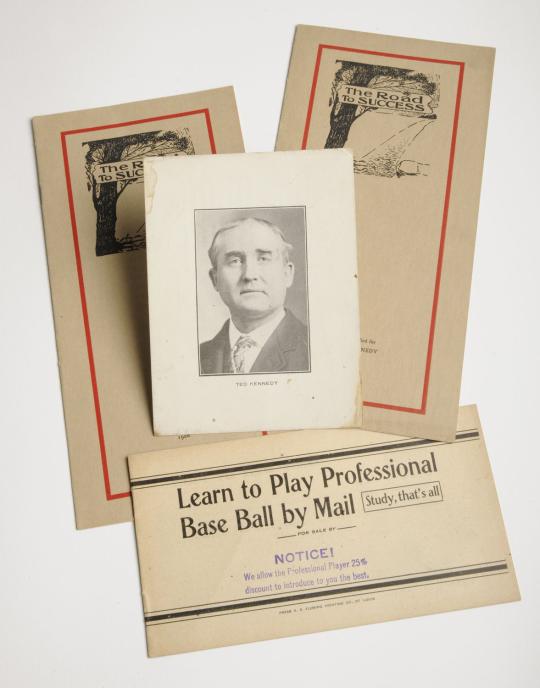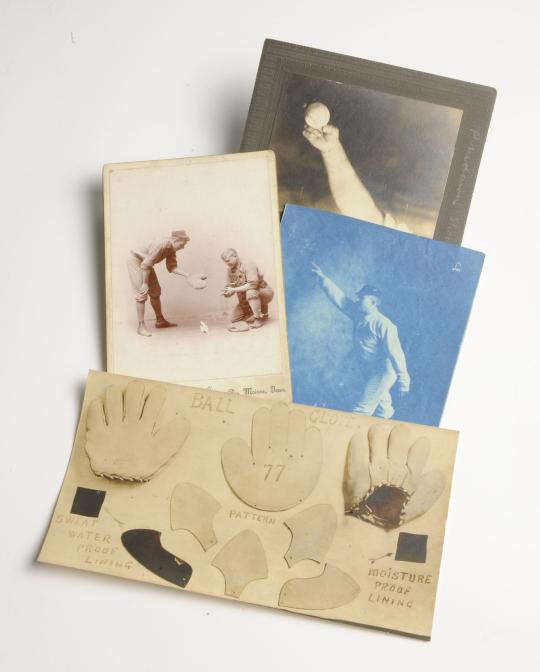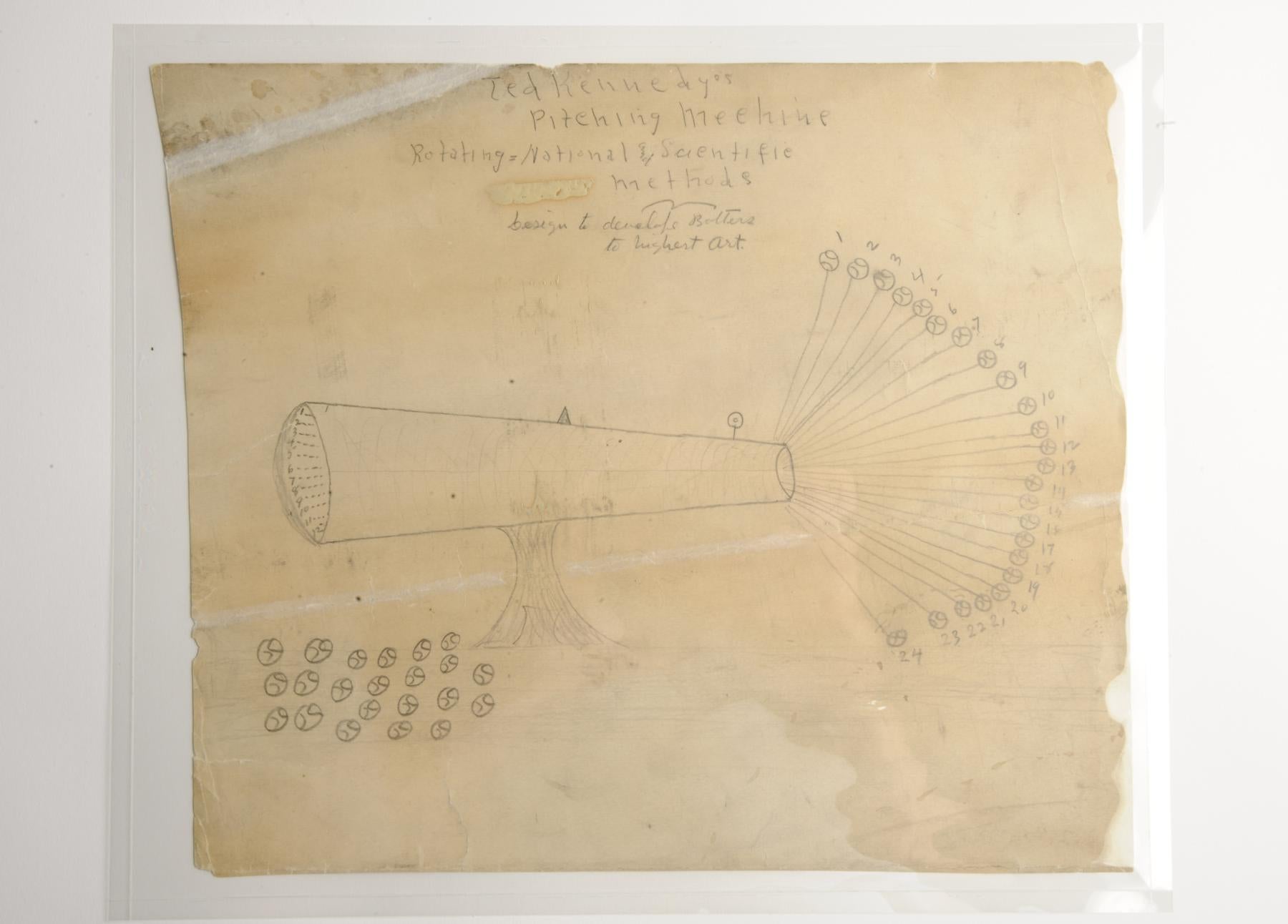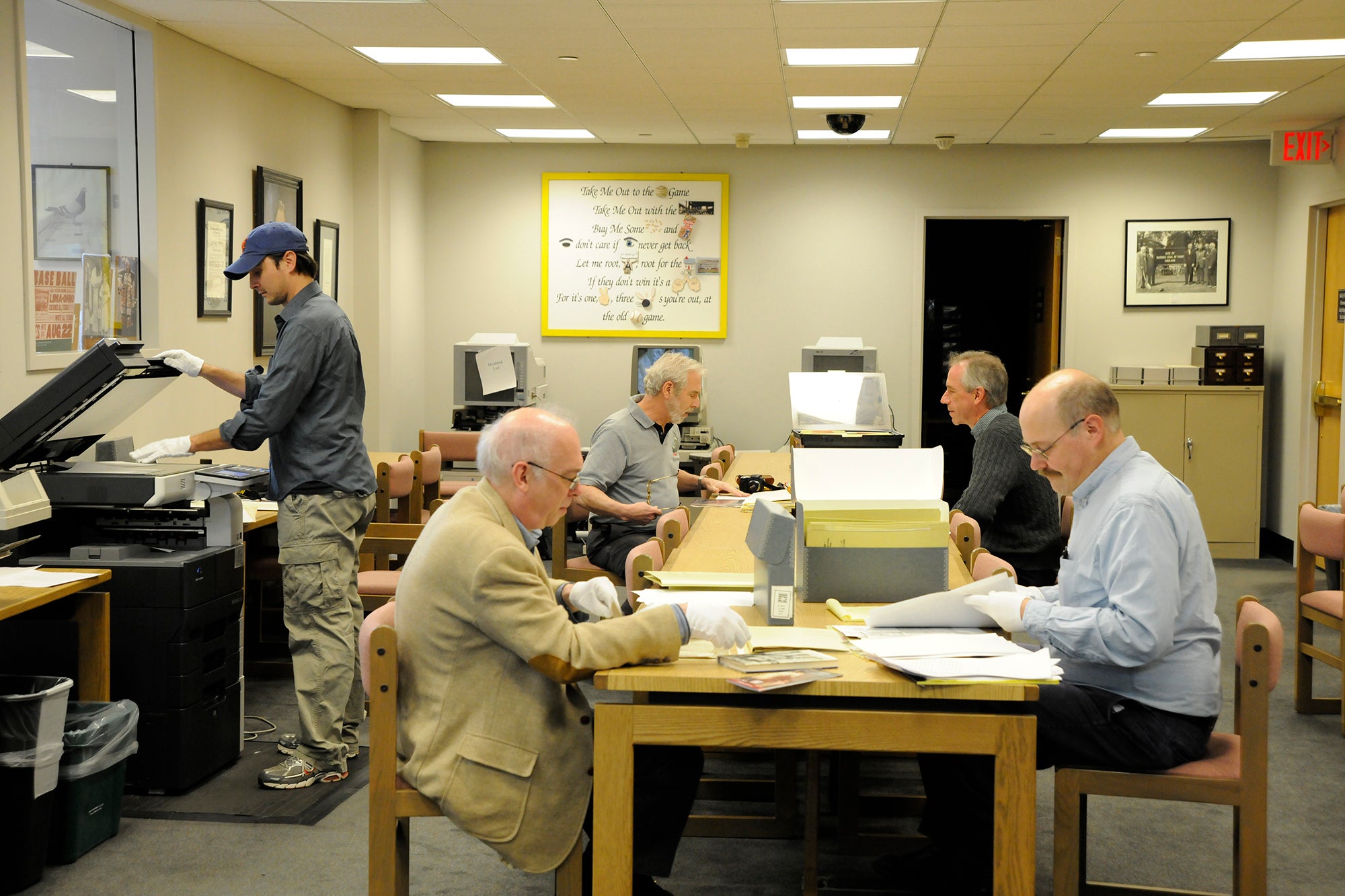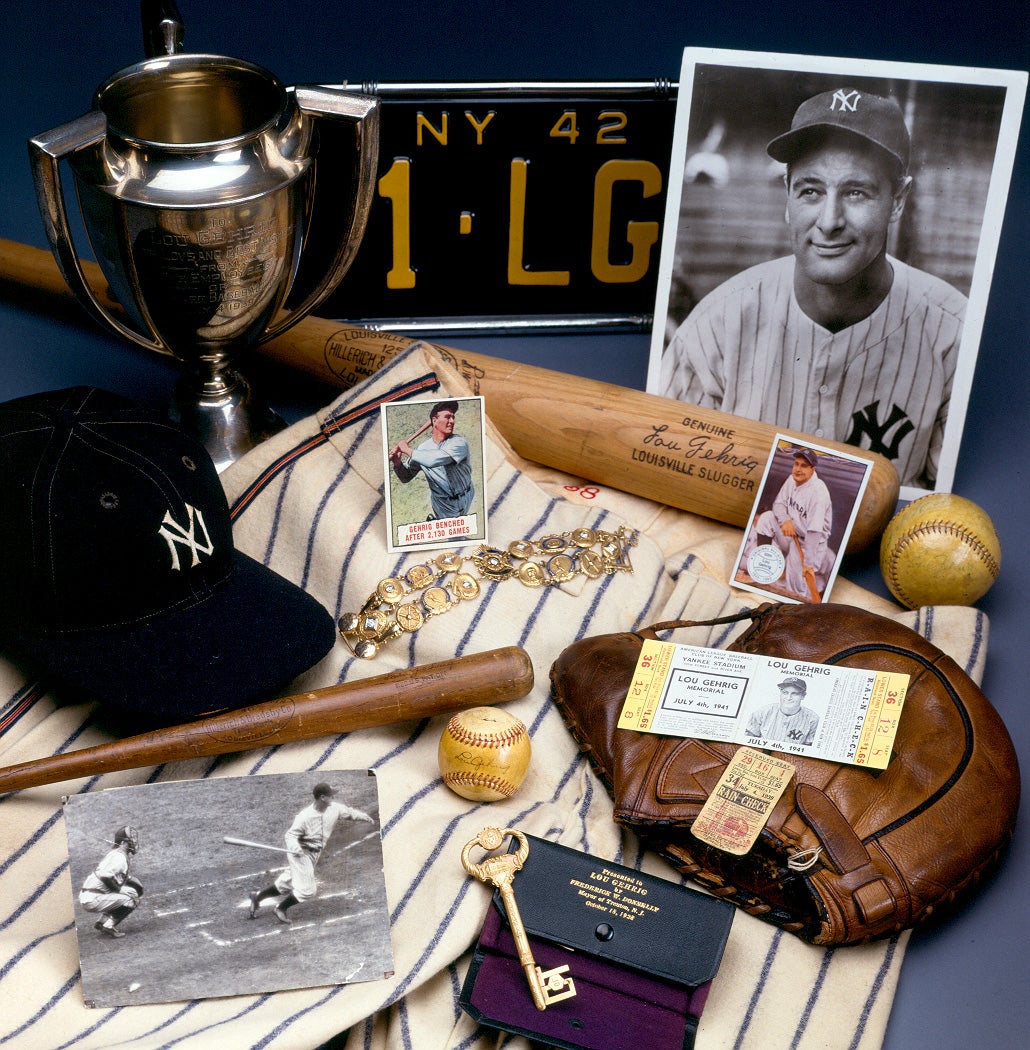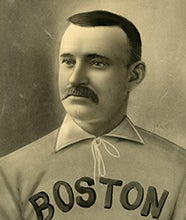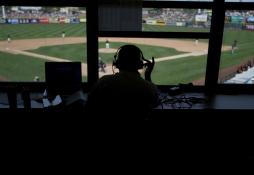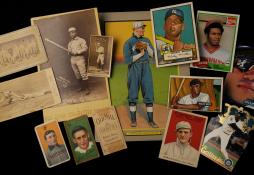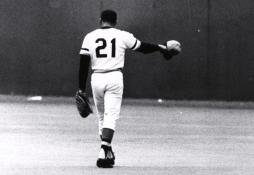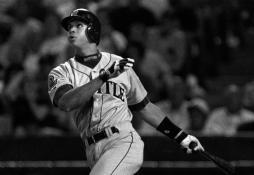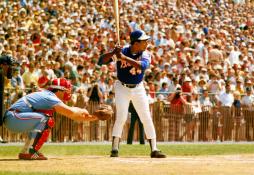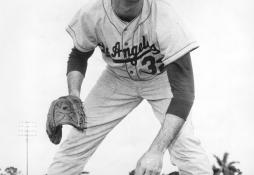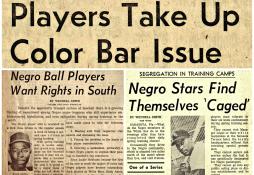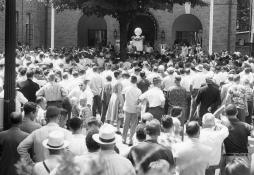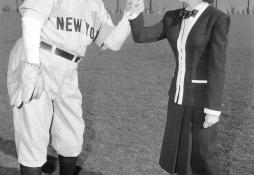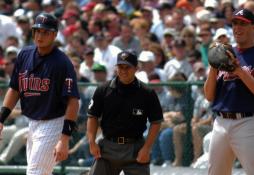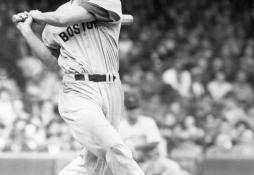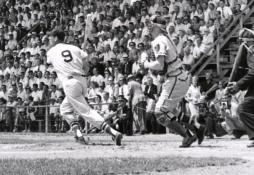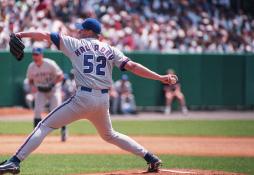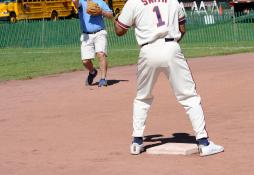- Home
- Our Stories
- Kennedy’s Library… documents
Kennedy’s Library… documents
When you hear the name Ted Kennedy, you naturally think of the former senator from Massachusetts. But at the National Baseball Hall of Fame, we often think of the “other” Ted Kennedy.
A 19th century pitcher whose playing days were short-lived, Kennedy’s post-playing days would lead to teaching the game, and to manufacturing equipment. In 1976, Kennedy’s grandson, Dick Metzger, donated his grandfather’s collection to the Hall of Fame library.
The Ted Kennedy Collection includes: Two scrapbooks of lessons, which are hand drawn, handwritten and typed; his glove patterns, with each piece cut out, ready to be assembled; flyers, brochures and articles with playing instructions to pitchers and players; and how to order a glove through the mail. A complete content list is available in this collection’s finding aid.
Born in 1865 in Illinois, Kennedy’s youth was spent in Peoria, making his love for baseball inevitable. At the age of 13, he served as batboy and waterboy for the Peoria Reds, one of the top independent teams. Charles “Old Hoss” Radbourn was the team pitcher and Kennedy later recalled that he was one of the first to master the overhand curveball.
Kennedy went on the pitch in the National League with the Chicago White Stockings in 1885. In 1886, he played for the Philadelphia Athletics and the Louisville Colonels in the American Association. In the Sporting Life issue of Nov. 12, 1886, it states that “players who have played against Ted Kennedy, all agree that he is quite likely to prove a strong man for the Athletics.” Unfortunately, a shoulder injury contributed to ending his baseball career, at least as a player.
Not discouraged by the end of his playing career, Kennedy moved on to the manufacturing business, specifically sporting goods. Thanks to the carpentry skills learned from his father, his specialties were gloves and catcher’s mitts. He also invented a pitching machine, a drawing of which is included in his papers. He eventually sold his patents to the A.G. Spalding Company and opened a baseball school, specializing in teaching the curveball.
Photo of Ted Kennedy with his brochures “Road to Success” 1906, BL-2526.76 and “Learn to Play Professional Base Ball by Mail,” BL-2524.76 (Milo Stewart, Jr. / National Baseball Hall of Fame and Museum)
Share this image:
By 1907, it was said that Kennedy and a group of others were interested in purchasing the St. Louis Cardinals. Unfortunately, Kennedy died Oct. 31 of that year at the age of 42.
Anyone interested in viewing this collection can make an appointment by contacting the Library’s reference desk at research@baseballhall.org.
Claudette Scrafford is the manuscript archivist at the National Baseball Hall of Fame and Museum

